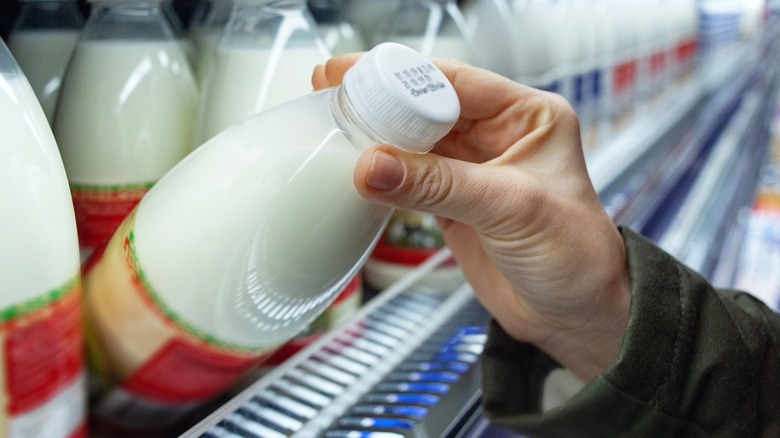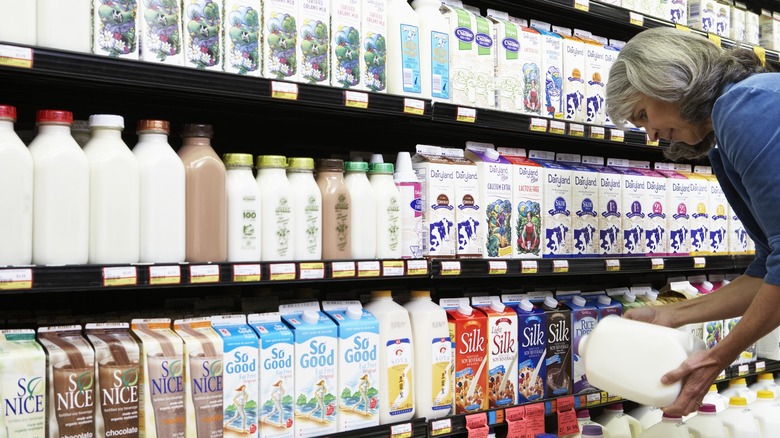Is There A Real Difference Between Name Brand And Generic Milk?
If you've been switching to the generic versions of your grocery staples to save money lately, you aren't alone. According to the U.S. Department of Agriculture (USDA), food-at-home prices increased by a whopping 11.4% from 2021 to 2022, the highest rate since 1979. Food inflation went up by another 2.9% from November 2022 to November 2023, per the U.S. Bureau of Labor Statistics (via the U.S. Inflation Calculator), and it has changed the way people shop on an everyday basis. In a Tasting Table exclusive survey, 40.65% of readers named "switching to generic" as their number one strategy for keeping their grocery bills down.
Generic brands (aka store brands or private labels) cost an average of 25% to 30% less than the same or comparable items bearing a brand name, which adds up quickly. For example, at a New York Walmart, Oatly brand oat milk costs $4.98 per ½-gallon, while Planet Oat costs $3.77 and Chobani oat milk costs $3.58. Meanwhile, Walmart's generic Great Value oat milk costs just $2.78. Why the differences? When you buy name-brand milk, you're also financing a marketing campaign and even paying for shelf space fees. Trader Joe's, a popular limited assortment grocery store, keeps its prices low by offering private label products as more than 80% of total store inventory.
Generic milk is often not that different from brand-name options
In addition to the price factor, grocery store milk is produced regionally, and local production means lower processing and transportation costs per item. When you buy generic, there's a better chance that your milk is being shipped from a nearby area and will therefore be more affordably priced. To find out for sure, give the milk carton a thorough scan. The packaging will print the location that produces the milk. Sometimes, different brands of milk come from the same farm, even if one is more expensive.
Nutritional value is another factor to consider, and generic brands deliver. Some consumers think that branded milk contains added vitamins and minerals compared to generic milk, but this isn't necessarily the case. For example, Target's generic Good & Gather vitamin D whole milk ($3.99 per gallon in New York) totes a nearly identical nutrition label to Horizon Organic vitamin D whole milk at $9.99 per gallon — over twice as much.
A 1-cup serving of Target's generic milk contains 9 grams of fat, 8 grams of protein, 25% of the recommended daily value (RDV) for calcium, and 8% RDV for potassium — versus the 250% pricier Horizon Organic milk with 8 grams of fat, 8 grams of protein, 25% RDV for calcium, and 11% RDV for potassium. Still, these comparative values vary from brand to brand. You should always read the nutrition label on your milk to find out for sure, but the difference between some generic and name-brand milk might not go any deeper than the packaging.

